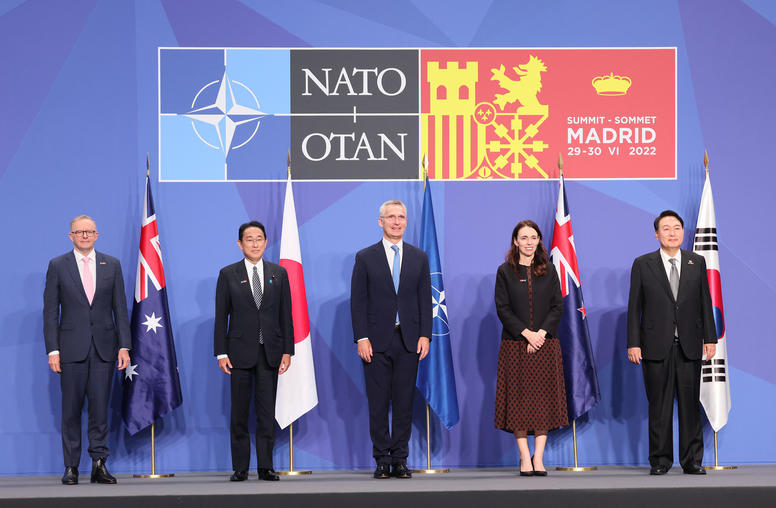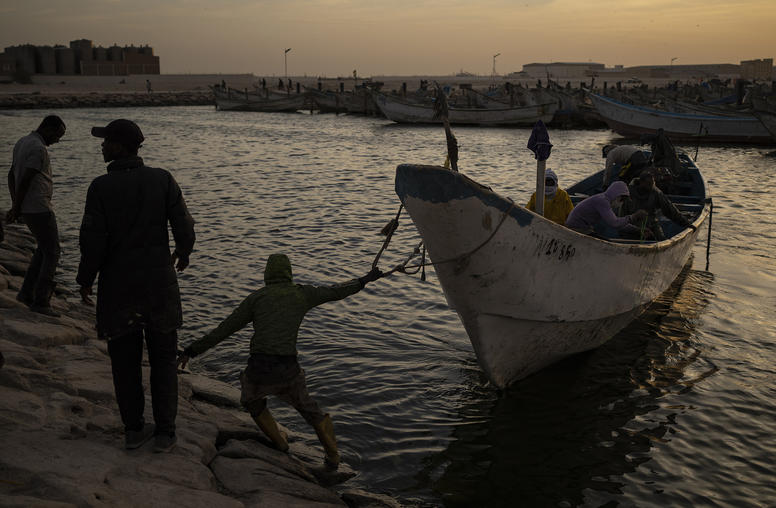The Veterans Day that Americans observe this week is rooted in hopes for peace that burst in 1918 from a train parked in a French forest: Allied and German military officers had signed a halt to humanity’s deadliest war ever. One hundred five years later, warfare in Ukraine, Israel-Gaza and dozens of countries have heightened both bloodshed and Americans’ concerns about whether humankind can fulfill our hopes for a world governed through laws rather than armed might. Still, the building of peace continues, even amid violence — and its builders include those who know best the horror of wars for having fought them.

That November 11, 1918 armistice ended World War I and its slaughter of 20 million people. America would now “show her sympathy with peace and justice in the councils of the nations,” President Woodrow Wilson declared in establishing the Armistice Day remembrance that would become Veterans Day. Only 20 years later, World War II would overturn that search for peace, killing 60 million people or more. Young U.S. veterans of that trauma would later commit to a new American effort to prevent wars, partly by founding a dedicated national institution for that mission: the United States Institute of Peace.
Military Experience to Build Peace
Forty years later, amid recent increases in violent conflict worldwide, USIP relies on serving military officers and veterans — as staff members, directors, fellows or partners. It works closely with the U.S uniformed branches in many efforts to prevent and reduce violent conflict abroad, along with its human and financial costs to the United States and the world. Veterans’ experiences and insights have bolstered a broad range of USIP’s projects, including fieldwork in war zones, improving America’s response to extremist movements and violence abroad, strengthening stability in the Asia-Pacific region, rebuilding American friendship and cooperation with Vietnam, and conducting unofficial diplomacy with representatives from major world powers to avoid conflict. Since 2016, a Senior Military Advisory Group of retired U.S. generals and admirals has strengthened USIP’s work.
“Sometimes, when people are just learning what’s needed to halt violent conflicts and build sustainable peace, we can hear them express some surprise that an institute of peace works closely with military organizations and their professionals,” said Rusty Barber, who directs USIP’s partnerships with U.S. government agencies, including the Defense Department. “But it takes only a moment’s thought to realize that this is essential. America’s peacebuilding institute and its military obviously must work as close partners if they are to achieve their national security missions.”
During the 2003-2011 U.S. intervention in Iraq, Barber directed USIP’s operations there and worked with the Army’s 10th Mountain Division and USIP’s Iraqi partners to facilitate a peace agreement south of Baghdad that calmed violence in a zone that had been nicknamed “The Triangle of Death.”
“Over the past seven years, our senior military advisors — these are three-star and four-star generals and admirals — have been especially valuable,” said Barber. This Senior Military Advisory Group offers overarching guidance “on the future of conflict — what its contours are going to look like going forward,” he said. “And among our country teams abroad, veterans “offer their experience on specific issues and conflicts.”
Reducing Violence, Strengthening Security
Barber and other USIP staff members recounted several ways, among many, that USIP’s veteran advisors and staff have melded civilian and military insights in current Institute projects.
Pinpointing improvements in U.S. security assistance vital to bolstering stability abroad. Ambassador Karl Eikenberry, a retired army lieutenant general, commanded U.S.-led coalition forces in Afghanistan and later served as ambassador in Kabul. Since 2020, he has co-chaired a USIP working group on the problem of corruption by elites in countries receiving U.S. security assistance. Where corrupt elite groups achieve control over their countries’ security forces, this “elite capture” and consequent corruption of military or police fuels public resentment, risks for extremism, and violence. The group’s study, released in February, examines this problem in Afghanistan, Mexico, Uganda and Ukraine. It combines insights of group members who include scholars, diplomats and peacebuilding practitioners as well as military veterans.
Preparing military, governmental, humanitarian and other organizations to respond better to sudden crises. USIP partners with the U.S. military’s Joint Staff (J-7) directorate to periodically convene a spectrum of representatives — from the U.S. government, international organizations, nongovernmental organizations, academia, think tanks and the private sector — to explore and practice coordinated approaches to complex security crises. “These are stakeholders that the U.S. military can’t gather on its own,” noted Barber. This periodic exercise, the Interorganizational Global Forum, recently “gamed out a Fukushima-type nuclear disaster in Taiwan — a scenario that would pull in nations that are strategic global competitors” in ways that would require careful crisis management to avoid confrontations, he said. Other recent years’ exercises have simulated potential crises around Venezuela, the Horn of Africa and the Philippines.
Analyzing improved steps to counter war and violent extremism, notably in South Asia and Africa. Retired Army Lieutenant General Michael Nagata “has been instrumental in helping USIP pinpoint critical lessons from 20 years of war and counterterrorism in Afghanistan and Pakistan,” said Tamanna Salikuddin, who directs the Institute’s South Asia program. Since last year, Nagata has co-chaired a USIP senior study group — of scholars, diplomats and other experts — that will recommend policy steps to better counter terrorism in South Asia.
On the enduring problem of extremism and its violence worldwide, Nagata is among USIP advisors, military veterans, who “have been vocal about the problem of over-reliance on the use of force and the need to link military efforts with civilian-led ones,” said Chris Bosley, who leads USIP’s program to counter violent extremism. “This has given USIP the space and legitimacy to define a uniquely American approach that contrasts with the heavy-handed ones preferred by authoritarian global rivals — an approach that contributes to global stability while centering human rights and human security, democratic norms and local agency.”
Strengthening the vital role of women in building peace in their countries. Retired Admiral Michelle Howard serves among scholars, civil society leaders and former diplomats on the Women Building Peace Council, which guides USIP in promoting the visibility, and thus the influence, of women leaders striving to end or prevent violent conflict in their countries. Hard data show that peace processes that exclude women achieve weaker results that break down faster. Women are typically the single biggest excluded community and resource in peacemaking, so their inclusion is critical.
Preventing a post-ISIS revival of extremist violence in Syria and Iraq. “Our engagements with military partners, through a variety of venues, are invaluable,” said Mona Yacoubian, USIP’s vice president for work in the Middle East and North Africa. “The insights and guidance we’ve received on a wide range of complex issues — from the problem set around the Al-Hol detention camp to broader stabilization challenges, to the importance of civilian-military cooperation in a dynamic and evolving environment in the Middle East — have been invaluable to our work.”
Broadly, “consecutive CENTCOM commanders, General Kenneth McKenzie and General Michael Kurilla, have made it a priority to find solutions to the aftermath of conflict in Iraq and Syria — particularly in regards to the tens of thousands of people from dozens of countries worldwide who remained consigned to displacement camps and detention centers in the region,” said Bosley. “And they press for diplomatic and development solutions where military ones are insufficient.”
A former Navy intelligence officer, Bosley recalled his work “in the military’s effort to support humanitarian operations in Haiti in the immediate aftermath of the earthquake in 2010. This experience highlighted the role that the military can play in advancing human security and supporting stability beyond kinetic operations.” Conversations with military colleagues about how to “support diplomatic and development efforts in conflict-affected countries to prevent violent escalations that could require military interventions … ultimately brought me to USIP,” Bosley said. Those conversations help to shape “our efforts to apply multidisciplinary, whole-of-society and peacebuilding tools to prevent and resolve violent extremist conflicts, and to reduce extremist violence.”
Veterans Day summons Americans to honor the ways that our nation’s uniformed service members have buttressed our ability to live in freedom and peace. The U.S. Institute of Peace benefits from, and builds on, those contributions every day in its congressionally mandated mission to advance U.S and international security by promoting “international peace and the resolution of conflicts among the nations and peoples of the world without recourse to violence.”



